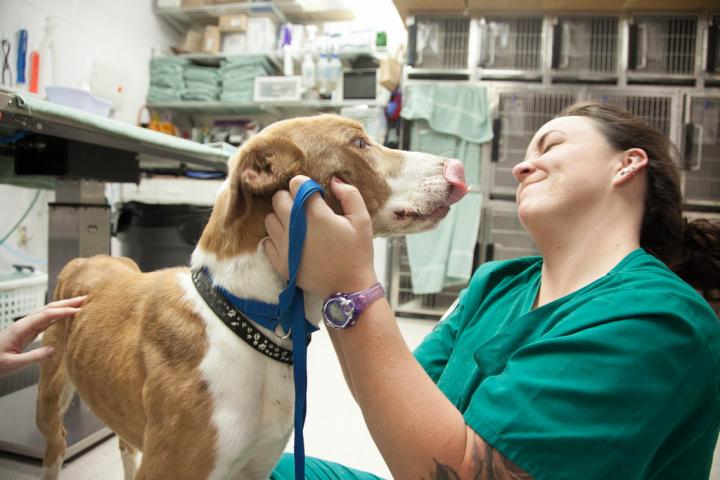
It’s not a secret anymore … veterinarians have poor mental health. Approximately 1 in 10 veterinarians report experiencing serious psychological distress and 1 in 3 veterinarians report they have had a previous depressive episode. And what’s more surprisingly to many is that 17% of veterinarians have had suicidal thoughts and 1% have attempted suicide. I continue to speak with people outside of the veterinary profession who are shocked by these statistics and remain unaware of the struggles that veterinarians face. I tell them quite frankly that the work that veterinarians do is hard. To use one of my favorite phrases, it is not all rainbows and butterflies!
Contrary to popular belief, as veterinarians we are not cuddling puppies and kittens all day and our clients do not always love and adore us. In fact, one of the biggest stressors within veterinarian medicine often stems from situations that arise when clients cannot afford the cost of their pet’s veterinary bill. Many things can unfold in this scenario and it varies from owner to owner. But the most difficult situation that veterinarians face is when a pet owner’s financial limitations result in the euthanasia of his or her pet.
Now don’t get me wrong, I am absolutely a proponent of euthanasia when it comes to reducing animal suffering and ending life in a humane way. However, it is morally distressing to veterinarians when we know that we can help an animal with a treatment, surgery, procedure, or medication, yet we are unable to because the owner cannot afford it.
Some people take the stance “an owner should not own a pet if they cannot afford veterinary care”, but the cost of veterinary bills to cover emergency visits or surgical procedures can easily reach thousands of dollars. Most pet owners or families do not have thousands of dollars in expendable income available to dedicate to veterinary bills. This does not mean that they are “bad owners”, this simply means that they are not financially prepared.
What I encourage friends and family members to do whenever they tell me that they are getting a new pet is to get pet insurance. Decades ago when pet insurance was new to the market, the premiums were high, the plans were not comprehensive, and the paperwork was cumbersome. Fast forward to today and pet insurance has become a saving grace for many pet owners whose animals I care for on an emergency basis.
As a veterinarian, we often feel apprehension when speaking to pet owners regarding the cost of care for their pets. I have thought numerous times to myself (and sometimes aloud to clients) “I would not be able to pay for this myself, so I understand if you cannot pay for it either”. The reality is that emergency care and specialized surgical procedures are expensive. So, when an owner says to me “don’t worry, I have insurance” or “will my pet insurance cover that?”, I literally breathe a sigh of relief.
I congratulate those owners for being responsible in planning ahead for unforeseen emergencies or expensive procedures that they do not have the funds to cover and I applaud them for making my ability to provide the best care for their pet that much easier.
When I say that pet insurance helps the mental health of veterinarians, I sincerely mean it. Situations of moral distress such as those that occur when a pet owner must choose euthanasia over veterinary care are the leading cause of burnout and compassion fatigue among veterinary care providers. Just think of how many of those situations could be resolved by owners obtaining insurance for their pets!
If you are interested in learning more about pet insurance and the options available, read the article “Is pet insurance worth the cost?”.
I truly believe that just as universal healthcare makes human medicine that much more accessible, pet insurance would do the same for veterinary care. And even more importantly, psychological distress will be lessened for many veterinarians.
Marie K. Holowaychuk, DVM, DACVECC is a small animal emergency and critical care specialist and certified yoga and meditation teacher who has an invested interest in the health and well-being of veterinary professionals. She facilitates wellness workshops, boot camps, and retreats for veterinarians, technicians, students, and other veterinary care providers. To sign up for newsletters containing information regarding these events and veterinary wellness topics, please click here. More information can be found at www.criticalcarevet.ca.